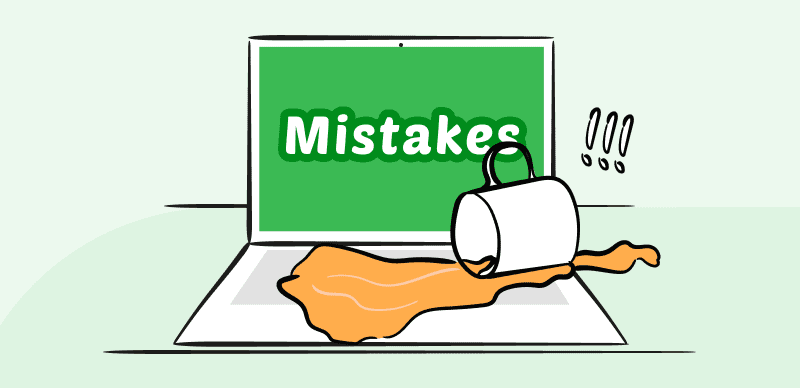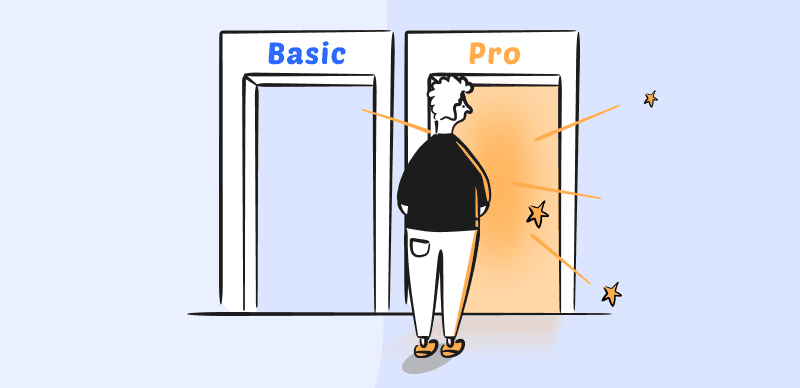The Most Common Mistakes By Startup Founders
Starting a business is a challenging task, and it requires a lot of hard work, dedication, and perseverance. However, even the most experienced entrepreneurs can make mistakes, and startup founders are no exception. In this article, I’d like to discuss the most common mistakes made by startup founders and how to fix them.

Common Mistakes By Startup Founders
Table of Contents: hide
Building a Bigger MVP than Necessary
Not Doing Enough Research
One of the most critical steps in starting a business is conducting thorough research. Unfortunately, many startup founders fail to do this, leading to failure.
Before launching a business, it is essential to understand the market, competition, and target customers. The research will also help in identifying potential challenges and opportunities. You should be aware of the pitch before beginning the game.
Among all these, in-depth market research holds the top priority.
However, many startup founders ignore market research and assume that they know what their customers want, which is not the case. Sometimes they focus more on the competitors rather than their audience. This can lead to a product or service that does not meet the needs of the target market because of failure to define your target audience.
🕵️ Solution:
Conduct thorough market research before launching your product. This includes identifying your target audience, understanding their needs and pain points, and analyzing your competitors. Use this information to refine your product and marketing strategy. Plus, understanding your target audience is as important as understanding your competitors, so please ensure to put them in equal importance
Building a Bigger MVP than Necessary
Most founders strive for scalability and have a grand vision for the solution to a thorny problem and usually jump into the built mode.
However, trying to achieve perfection in design and creating features that provide optimal performance from the very beginning at the expense of practicality and functionality is not a sustainable way to go about it.
It’s not just excessive but also wasteful to try and create every feature from scratch while your product is at the MVP stage. This always ends up with spending too much and achieving too little.
🕵️ Solution:
You don’t need to respond to all user needs at this stage. Instead, find the smallest product area you can test with. Don’t try to make your MVP perfect, focus on the core functionality and stick to the actions that will provide the most value in the future.
Underestimating The Importance Of Marketing
Many startup founders make the mistake of underestimating the importance of marketing and sales. They think that their products are so revolutionary that they can just rely on free PR and word of mouth.
While having a great product or service is essential, it’s equally important to have a solid marketing and sales strategy to reach your target audience and drive revenue.
Marketing is critical in attracting customers and building brand awareness. Unfortunately, many startup founders neglect marketing or fail to develop a comprehensive marketing strategy.
🕵️ Solution:
In reality, the vast majority of startups will need to invest heavily in marketing. This may include SEO, content marketing, PR, and paid advertising. Take a look at where your competitors are spending their marketing dollars, and ask yourself how you can compete and differentiate yourself. A well-designed marketing plan can help in identifying target customers, creating brand identity, and building a loyal customer base.
Focusing too Much on Features Instead of Benefits
Another mistake made by SaaS startup founders is focusing too much on the features of their product instead of the benefits to users, which sometimes leads to failure to focus on a single type of user’s pain point. While features are important, customers are more interested in how the product can solve their problems and make their lives easier. So the point is not about how many features you add to your product, but whether your product can truly solve their problems.
🕵️ Solution:
Stop to keep adding features to the product, focus on the benefits of your product and how it can solve your customers’ problems instead. Use customer feedback to refine your messaging and highlight the benefits that are most important to them.



